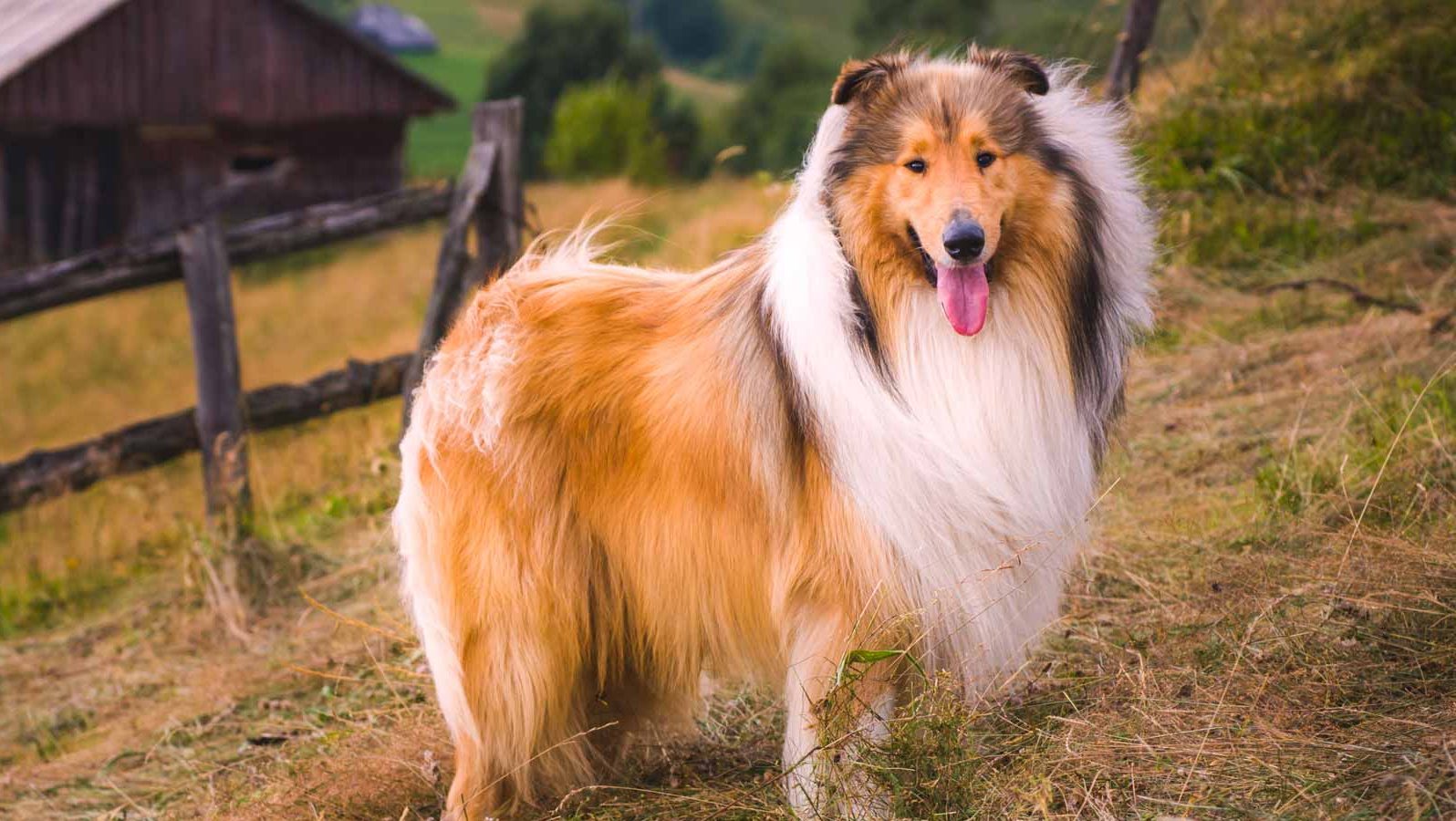-
Activity Level:
high
-
Shedding Level:
high
-
Grooming Level:
high
-
Trainability:
high
-
Good for Novice Owners:
moderate
-
Adaptability:
moderate
-
Kid/Pet Friendly:
often
-
Prey Drive:
moderate
-
Watchdog:
chill
- Average Size: Medium
- Average Lifespan: 12-14 years
- Registered?: aca, akc
Collie Dog Breed Information
Overview
Temperament
Adaptability
Health
Owner Experience
Grooming
Activity Level
Size
Life Span
Did You Know?
The well-liked and talented Collie is a classic and respected member of the Herding Group. The Collie originated in Scotland as a herding dog. They were prized specifically for their skill in herding sheep, but were valued as herding dogs for other livestock as well.
Although their ancestry can be traced back to Roman roots over 2,000 years ago, the modern Collie entered the written record around 1800. Queen Victoria discovered the Collie later during the 19th century, fell in love with the breed, and is credited with popularizing the breed among her subjects during the latter half of the 19th century.
The American Kennel Club recognized the Collie in 1885. The AKC recognizes a specific breed of dog as “Collie”, but there are many breeds considered to be collies that do not carry the actual name. Some of the other collies that are easily recognized are the American “Rough Collie” and the British “Border Collie”, which are exceptional herding breeds true to the Collie name.
Collies tend to be sweet and affectionate dogs that bond closely with their families and enjoy being around them. Their energetic and playful personalities tend to be a great fit for children. They also tend to get along well with other dogs and other pets as long as they are well-socialized.
They will even tend to warm up to strangers once introduced. Collies are vocal dogs that are prone to barking a lot, especially alert barking. This makes early and consistent socialization important as well as training your dog to stop barking to keep it from becoming a nuisance.
Collies are moderately adaptable dogs. They are better suited to homes with fenced yards where they can run, but they can adapt to apartment living as long as they get enough daily exercise, mental stimulation, and attention.
They are sensitive dogs, however, and do not generally enjoy loud, noisy environments, a lot of yelling, or large parties in small environments. They do well with cooler temperatures and are sensitive to heat. Because they bond so closely with their families, they do not like to be left alone for long periods of time.
Potential health concerns to be aware of in a Collie include Collie eye anomaly, the MDR1 mutation that causes certain drug sensitivities, and canine Cyclic Neutropenia, or Grey Collie Syndrome. This is considered a stem cell disorder that, in the past, was often missed because it caused discoloration that mimicked the rare Blue-Merle Collie color.
Good breeding practices and the health of the parents make a big difference in the health of Collie puppies. Reputable breeders will screen their dogs to avoid passing preventable issues to puppies.
Make sure you are asking about the genetic history of both parents and about any testing that has been done. The Collie Club of America, Inc. recommends DNA tests for Collie Eye Anomaly, dermatomyositis, multidrug resistance, and progressive retinal atrophy, specifically rod-cone dysplasia.
The Collie is one of the smartest dog breeds. They tend to pick up on things quickly and are eager to please. This makes them a highly trainable dog breed that tends to be quick to pick up on verbal commands as well as hand signals during training.
As working dogs, they do need a job to do to be happy and healthy. With a yearning to work and to learn new things, you can keep your Collie occupied with plenty of daily exercise and learning new things.
Collies are one of the fluffiest dog breeds. In the Collie’s case, this means that they will shed year-round, shed heavier as seasons change, and require some grooming and the occasional bath to keep their long coat healthy and looking great.
One of the facts about Collies is that they have two coat types – rough and smooth. Both coat types are double coats, so shedding is similar, but grooming needs are slightly different. A smooth Collie does not have the extra fluffiness around their neck and chest, so weekly brushing is enough for them as long as you get down into the undercoat. A rough Collie will need brushing a few times a week. Daily brushing is recommended for both coat types during seasonal shedding.
In addition to coat care, you will also need to take care of your Collie’s nails, ears, and teeth. Cutting nails once or twice a month keeps them from growing too long. Checking ears weekly and carefully cleaning them as needed can help prevent ear infections. Daily brushing, along with cleanings at the vet as needed, is good dental care for dogs.
Although Collies have a lot of energy, they are not quite as high-energy as their Border Collie cousins. They’ll still need a job to do and plenty of daily exercise and mental stimulation to be happy and healthy, but they’ll also be happy to take a break and relax with you when the work is done.
Collies are also athletic and versatile dogs. In fact, they’re one of the sturdy dog breeds for outdoor adventures. So, once they are finished growing and are cleared for higher-impact activities, you can try a bunch of different things with them. From training for dog sports to hiking, paddling, and more, there are a lot of activities your Collie might like.
A fully-grown Collie usually stands 22-26 inches tall at the shoulder and weighs 50-75 pounds.
Collies generally live for 12-14 years on average.
The Collie’s popularity in the United States can be credited to two authors – Albert Payson Terhune and Eric Knight. Albert Payson Terhune was a dog breeder and wrote the Sunnybrook Collies series for young readers. Eric Knight was a British author who wrote the classic novel Lassie Come Home, which led to the movies, TV series, and more that made the Collie one of the most popular dog breeds.









